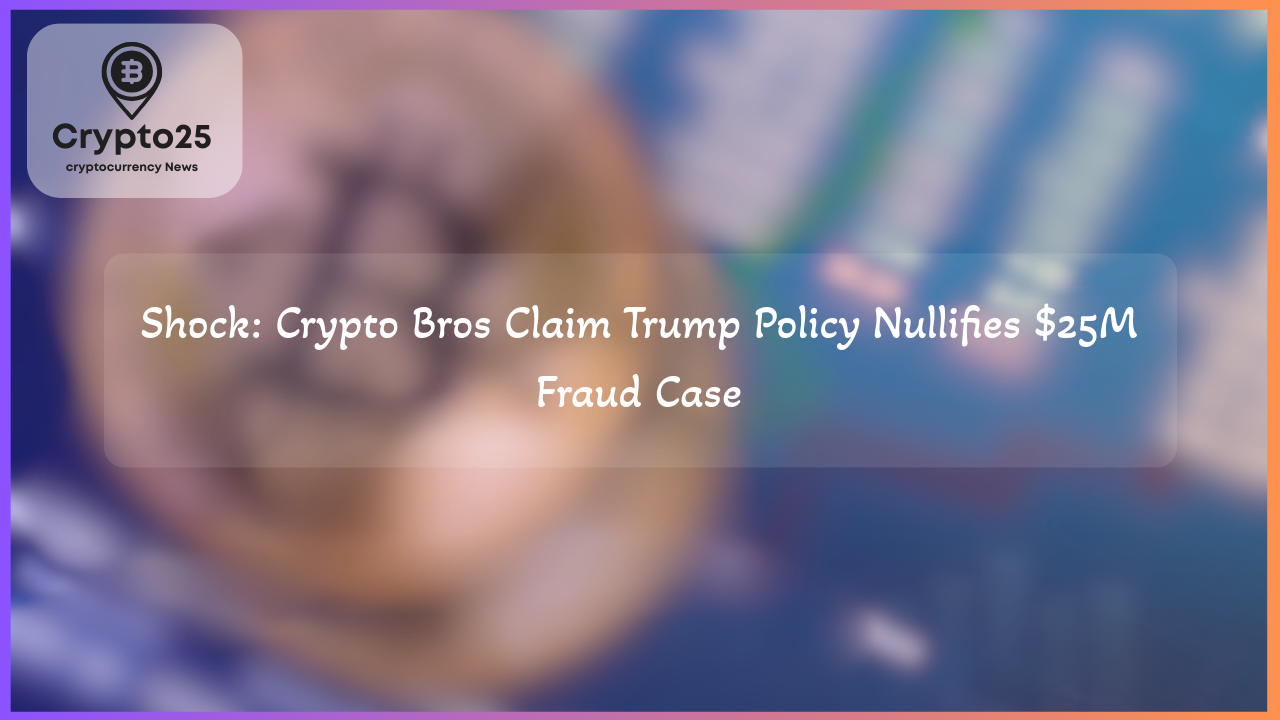
The legal landscape surrounding cryptocurrencies has always been a topic of global intrigue, and recent courtroom developments have brought it further into the spotlight. Two brothers are now at the center of a groundbreaking case involving over $25 million worth of Ethereum. The outcome of their trial could reshape how digital assets are viewed under U.S. law, with broader implications for the global crypto community.
## DOJ Crypto Policies and the Question of Property
The Department of Justice (DOJ) has recently made waves within the cryptocurrency space by revising its enforcement policies on digital assets. A notable case involving Anton and James Pepaire-Bueno highlights this policy shift. Charged last spring with exploiting Ethereum’s validation mechanism to siphon millions in ETH, the brothers now argue that the DOJ’s stance on crypto as non-property fundamentally undermines the charges against them. This case underscores growing debates over whether digital currencies can even be classified as “property” in legal terms. Lawyers for the defendants have cited a recent DOJ memo instructing prosecutors to reevaluate cases related to crypto assets, creating a legal gray area for ongoing enforcement actions.
The memo also disbanded the DOJ’s crypto enforcement team and emphasized that the agency does not act as a regulator for digital assets. Such declarations could potentially shield the brothers from further litigation, as their legal team claims that without clarity on crypto’s regulatory status, the assets allegedly misappropriated do not meet the legal definition of property, thus nullifying certain charges.
## Crypto Regulations and Their Global Implications
The evolving nature of digital asset policies in the U.S. reflects broader uncertainties plaguing the crypto industry worldwide. The Pepaire-Bueno brothers’ case is not an isolated anomaly. It mirrors a growing trend of courts and governments struggling to define cryptocurrencies’ legal identity. As nations debate whether these assets are commodities, securities, or property, each definition carries vast implications for traders, investors, and legal practitioners.
For instance, this case echoes concerns tied to the DOJ’s recent revision to its prosecutorial priorities. By asserting that the agency won’t impose regulatory frameworks on digital assets or pursue litigation unless clearly warranted, prosecutors are treading lightly. At the heart of this shift lies the question of whether digital assets—and cases of theft or exploitation surrounding them—can even fit within established legal parameters without a universally recognized definition.
Beyond the U.S., countries like the U.K. and Japan are also wrestling with such definitions, crafting policies that echo these legal complexities. And for global enterprises operating across jurisdictions, such ambiguity fuels speculation and hesitance to fully embrace digital asset adoption.
## High-Profile Crypto Cases Under Review
While the Pepaire-Bueno brothers’ trial unfolds, the DOJ’s revised guidelines are also raising questions about other high-profile crypto cases. For example, the ongoing case against Roman Storm, a co-founder of Tornado Cash, has drawn increased scrutiny following policy revisions. Storm is accused of aiding North Korea’s use of Tornado Cash to launder millions of dollars of digital assets. However, the new DOJ directive advises prosecutors to focus on enemy entities exploiting crypto rather than the platforms in question themselves.
This nuanced shift reveals a potential precedent for leniency toward companies or platforms inadvertently used for illicit purposes. Nevertheless, Storm’s case is still scheduled for trial, and legal experts are closely watching whether the DOJ’s updated guidance could alter its trajectory or broaden its precedent to other similar cases.
| Title | Details |
|---|---|
| Market Cap | $1.2 Trillion |
| Ethereum Cases | Over $25M involved |
| DOJ Memo Changes | Disbanded Crypto Task Force |
The crypto industry’s legal battles reveal deeper questions about its legitimacy and classification within traditional frameworks. Whether it’s theft cases or platform misuse allegations, the shifting policies and courtroom tests in the U.S. could ultimately set global standards. As the legal landscape continues to evolve, these developments could shape how cryptocurrencies are traded, governed, and regulated worldwide. For now, the crypto community waits to see whether 2024 will bring clarity or further uncertainty.
